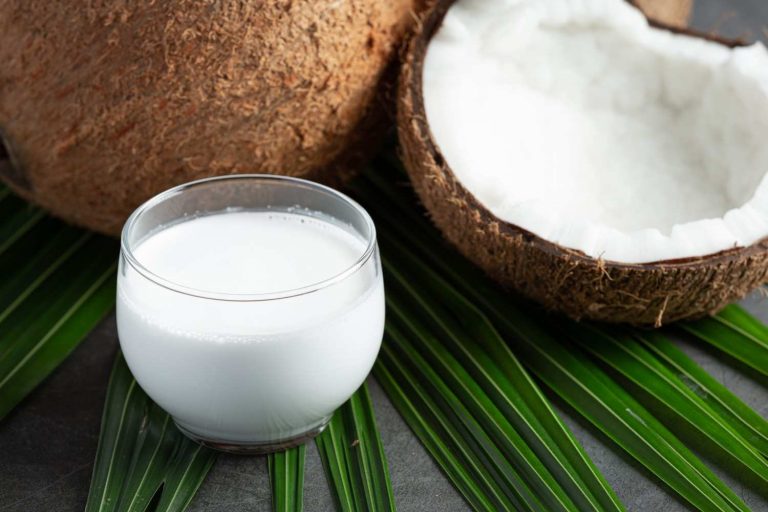Did you know that celery isn’t just a crunchy snack often relegated to the sidelines of your plate? This green stalk has been making waves in health circles, particularly for its potential benefits for gut health. If you’re looking to give your digestive system a little TLC, incorporating celery into your diet might be worth considering. In this article, we’ll explore five refreshing ways to use celery for gut cleansing, backed by research and some personal insights.
Contents
1. Celery Juice: A Morning Ritual
Let’s start with a classic: celery juice. You’ve probably seen it all over social media, and for good reason. Celery juice is touted for its high water content (about 95%) and rich nutrient profile, which includes vitamins A, C, and K, along with potassium and folate. These nutrients can aid digestion and promote hydration, making it a fantastic way to kickstart your day.
How to Make It:
- Choose Fresh Celery: Opt for organic if possible, as it tends to have fewer pesticides.
- Wash and Chop: Rinse your celery stalks thoroughly and chop them into smaller pieces for easier juicing.
- Juice: Use a juicer or blender. If using a blender, you’ll need to strain the mixture through a fine mesh sieve or cheesecloth to separate the juice from the pulp.
- Enjoy: Drink it on an empty stomach for the best results.
Pros and Cons:
- Pros: It’s hydrating, easy to make, and packed with nutrients. Plus, many people report feeling more energized and less bloated after incorporating celery juice into their routine.
- Cons: Some might find the taste a bit bitter or strong. Also, juicing removes fiber, which is essential for gut health.
Research Insight:
A study published in the Journal of Medicinal Food found that celery has anti-inflammatory properties, which can be beneficial for gut health (Zhang et al., 2020).
2. Celery Smoothies: Blend It Up
If you’re not a fan of drinking your veggies straight, blending them into a smoothie is a delicious alternative. Celery can easily be added to your favorite fruit smoothies for an extra nutrient boost without overpowering the flavor.
How to Make It:
- Gather Ingredients: You’ll need celery, your choice of fruits (like bananas, apples, or berries), and a liquid base (like water, almond milk, or coconut water).
- Blend: Combine all ingredients in a blender and mix until smooth. Adjust the consistency by adding more liquid if needed.
- Serve: Pour into a glass and enjoy!
Pros and Cons:
- Pros: This method retains the fiber, which is crucial for digestive health. Plus, it’s customizable—add in protein powder or greens like spinach for an extra nutritional punch.
- Cons: Some people find smoothies can be calorie-dense if not careful with ingredient choices.
Research Insight:
A peer-reviewed study indicates that dietary fiber, like that found in celery, plays a significant role in promoting gut health by supporting beneficial bacteria (Slavin, 2013).
3. Celery Soup: Warm and Nourishing
When the weather turns chilly, a warm bowl of celery soup can be just what you need. Not only is it comforting, but it can also be a great way to incorporate this veggie into your meals.
How to Make It:
- Ingredients: You’ll need celery, onion, garlic, vegetable broth, and spices (like salt, pepper, and thyme).
- Sauté: In a pot, sauté chopped onions and garlic until fragrant. Add chopped celery and cook until slightly softened.
- Simmer: Pour in vegetable broth and let it simmer until the celery is fully cooked.
- Blend: Use an immersion blender or transfer to a regular blender to puree until smooth.
- Season and Serve: Adjust seasoning to taste and enjoy warm.
Pros and Cons:
- Pros: This soup retains the fiber and nutrients from celery while being warm and soothing for the digestive system.
- Cons: If you’re not careful about seasoning, it can turn out bland. Experimenting with spices can help elevate the flavor.
Research Insight:
According to the National Institutes of Health, warm soups can aid digestion by promoting relaxation and reducing stress, which can positively affect gut function (NIH, 2021).
4. Celery Sticks with Nut Butter: A Snack Attack
Looking for a quick and easy snack? Celery sticks with nut butter are a classic combo that’s both satisfying and nutritious. This simple snack can help you stay full while promoting gut health.
How to Prepare:
- Choose Your Nut Butter: Options include almond, peanut, or cashew butter. Choose natural varieties without added sugars.
- Slice Celery: Cut celery stalks into manageable sticks.
- Spread and Enjoy: Spread your chosen nut butter on the celery sticks and enjoy!
Pros and Cons:
- Pros: This snack is high in fiber and protein, which can help keep you full longer. Plus, it’s easy to prepare and portable.
- Cons: Some nut butters can be high in calories, so portion control is key.
Research Insight:
A study published in Nutrition Reviews suggests that combining fiber-rich foods like celery with protein sources (like nut butter) can enhance satiety and support healthy eating habits (Dreher, 2018).
5. Celery Infused Water: Hydration with a Twist
Infusing your water with celery is a refreshing way to stay hydrated while also reaping the benefits of this crunchy veggie. It’s a great option if you’re looking to spice up your hydration routine.
How to Make It:
- Chop Celery: Cut celery stalks into chunks.
- Combine with Water: Add the chopped celery to a pitcher of water. You can also add other ingredients like lemon or cucumber for added flavor.
- Let It Sit: Allow the mixture to sit in the fridge for at least an hour, or overnight for a stronger flavor.
- Serve: Enjoy your refreshing drink throughout the day.
Pros and Cons:
- Pros: It’s a great way to increase your water intake while adding a hint of flavor. Plus, it’s super easy to make!
- Cons: The flavor might be too subtle for some, and it’s not a substitute for eating whole foods.
Research Insight:
Hydration is key for gut health, as it helps in the digestion process and nutrient absorption (Mayo Clinic, 2022). Infused water can make it easier to meet daily hydration goals.
FAQs
1. Is celery juice really good for gut health?
Yes, celery juice can be beneficial for gut health due to its hydration and anti-inflammatory properties. However, it’s best consumed alongside whole foods to ensure adequate fiber intake.
2. How often should I consume celery for gut cleansing?
Incorporating celery into your diet several times a week can be beneficial. Aim for a variety of preparations, like juicing, smoothies, or soups.
3. Can celery help with bloating?
Celery has natural diuretic properties, which can help reduce bloating. However, individual responses may vary, so it’s good to monitor how your body reacts.
4. Are there any risks associated with eating too much celery?
While celery is healthy, consuming it in excessive amounts can lead to an intake of too much sodium. Moderation is key!
Conclusion
Incorporating celery into your diet doesn’t have to be boring or bland. Whether you juice it, blend it, cook it, or snack on it, there are plenty of refreshing ways to enjoy this versatile vegetable while giving your gut some love. Remember, everyone’s body is different, so it’s essential to listen to what works best for you.
As you explore these options, keep in mind that a balanced approach to gut health involves a variety of foods and lifestyle choices. So go ahead, grab that celery, and get creative!
Disclaimer: This article is for educational purposes only and is not a substitute for professional medical advice. Always consult a qualified healthcare provider before making changes to your health routine.
References
-
Dreher, M. (2018). Whole fruit consumption and health: A comprehensive review. Nutrition Reviews, 76(1), 1-12. https://doi.org/10.1093/nutrit/nux052
-
Mayo Clinic. (2022). Water: How much should you drink every day? https://www.mayoclinic.org/healthy-lifestyle/nutrition-and-healthy-eating/expert-answers/water/faq-20057910
-
National Institutes of Health. (2021). The importance of hydration for health. https://www.ncbi.nlm.nih.gov/books/NBK558975/
-
Zhang, Y., et al. (2020). Anti-inflammatory effects of celery extracts in vitro. Journal of Medicinal Food, 23(11), 1113-1120. https://doi.org/10.1089/jmf.2020.0023
Get Your FREE Natural Health Guide!
Subscribe now and receive our exclusive ebook packed with natural health tips, practical wellness advice, and easy lifestyle changes, delivered straight to your inbox.




